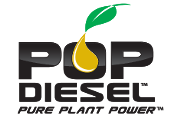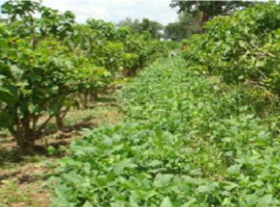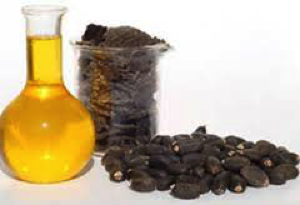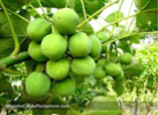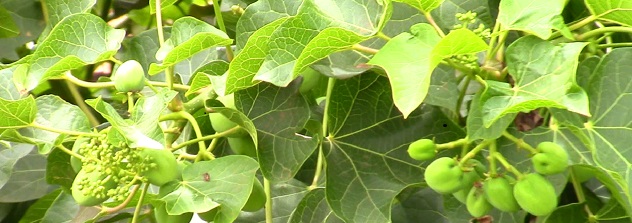
Jatropha Plant Oil
The jatropha curcas tree is native to southern Mexico, but it now grows in all of the non-arid, tropical regions of the world. Click here to read about the value of jatropha plant oil as a petroleum diesel fuel substitute and POP Diesel's method of supporting farmers to grow it on their own land in tandem with food crops.
POP Diesel works in countries whose agricultural sectors have great potential, but are underdeveloped. The Company provides material, such as seeds and organic herbicides, technical advice, and logistical support. Farmers sell POP Diesel their entire jatropha fruit harvest at a pre-arranged price. They also sell POP Diesel an agreed portion of their food crop harvest (soy, maize, rice, and peanuts, among others), which POP Diesel will process at factories in the center of the growing area powered by biomass which is left-over from jatropha plant oil extraction.
Farmer partners consent to using only sustainable practices. For instance, planting cover crops to fix nitrogen to the soil reduces the need for petroleum-derived fertilizer. POP Diesel does not employ irrigation, relying instead on plentiful, tropical rainfall, assuming it falls for the food crops at the right time of year. The Company avoids cutting down forests and displacing existing cropland to plant jatropha trees. Instead, small-scale farmers plant on their own, fallow land or on land that is naturally savannah grass or scrub-land.
POP Diesel lifts the income of farmers, improves their food security, strengthens their communities, enhances biodiversity, and generates the low-cost diesel engine fuel of the future for POP Diesel's trucking customers.

